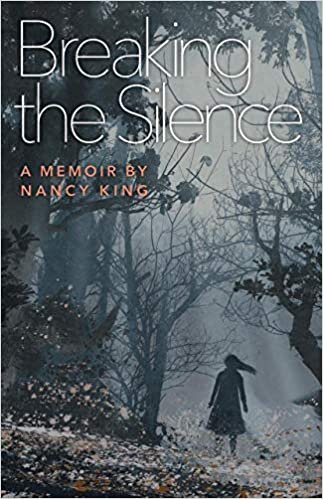You have squeezed out every drop of heart and soul. You’ve fleshed out intriguing characters, worked and reworked the plot points, and studied every sentence until your eyes crossed. Your critique partners have praised your progress, and the editing software has ranked your manuscript right up there with Jennifer Weiner. This is your time to shine.
With a solid query letter and the required pages, you hit send. And wait. The following writing days have you switching from your WIP to your inbox, hitting refresh, and dreaming of publishing success. Unfortunately, for a great majority of writers, initial responses are disappointing.
Since I began my Writing Table podcast, I have asked over fifty guests about their publishing journeys. For most, it’s as rocky as a hike up Kilimanjaro. For a few, their talent and patience paid off, and they landed agents instantly. Author Laurie Frankel spent three months polishing the query letter she sent to the singular agent who would sign her. Frankel’s experience is uncommon, a testament to the time she spent refining her message.
For most of us, the landscape looks quite different. We slug through countless rejections, combing them for meaning, and if we hone our craft and polish our manuscripts enough, we receive requests for pages. What happens then is anyone’s guess, as there are no guarantees of anything in this business. Before you allow rejections to crush your writing soul, let’s study what they mean. Since dashing off my first query in the fall of 2015, I have received at least one-hundred rejections which fall into one of three categories:
· Immediate rejections
o We will not be pursuing representation of your manuscript
o Because of the high volume of queries I receive, I will only be responding to authors where I will be asking for more materials. If you do not hear from me, consider it a “no.”
o Unfortunately, I'm afraid the project isn't the right fit for me.
· Considered, but ultimately rejected
o Thank you very much for your query, which we have read with interest. Unfortunately, the project does not seem right for this agency, and we are sorry that we cannot offer to serve as your literary agent.
o Unfortunately, after careful consideration of your manuscript, we have determined that it does not fit our needs.
o I'm afraid I didn't fall in love with it as I had hoped I would.
· Closely considered, rejected with feedback: Rare commentary provided by time-strapped agents who recognize the diamond in the rough.
o Thanks for sending me your heartfelt novel. I like the idea but I had a hard time with the characters. You're good with dialogue - but there's too much of it. It all sounds pretty natural but it's not all necessary. I didn't get caught up in the story. I'm sorry to not have a more positive response but I appreciate the chance and wish you the best on your search.
o Sorry, but I’m taking a final pass on your work. As a suggestion, you could consolidate your first forty or so pages to avoid repetition.
o There's some cleaning up to do, but it's nothing developmental, and just picking and choosing the best way to word things to fit the characters.
Agents don’t take pleasure in rejections. There are exponentially more authors than agents, and even fewer editors poised to purchase your manuscript. This reality presents an unreal workload for agents as they screen for projects to champion. It’s not personal. An agent might enjoy reading a manuscript, but if they don’t think they can sell it, they won’t sign you. It’s that simple.
How to stay motivated when rejections come?
· Expand your writing community through Twitter, Facebook groups, writing conferences and workshops. Writing is a solitary job, and it’s easy to feel isolated. Know you’re not alone. The writing community is especially supportive of its own, so don’t be afraid to reach out via social media. Some of my best writing pals came into my life this way, and I might have quit a long time ago if not for their support. Writing organizations and NANOWRIMO (National Novel Writing Month) introduce authors through message boards and local programming.
· Don’t stop writing. If your butt doesn’t land in that chair, you have nothing to edit.
· When making significant changes to a manuscript, use the “save as” feature to preserve the former version. You never know when you might want to resuscitate a discarded character or scene.
· Rejections sting, but underneath the discomfort lies relevant feedback. Let the initial pain wear off, then search for helpful nuggets. The line you love might distract the reader from the core of the story, or a character doesn’t move the plot forward. An agent might recommend a developmental edit or only a few tweaks. Actionable feedback from an agent can be solid gold.
· Author Camille Pagan reminds newbie authors to ask, “What would a career author do?” Face writing as if you were already the career author you hope to become. Get up and write regularly. You’re never too good to stop refining your craft. Listen to feedback. Trust your gut. Don’t give up.
Kris Clink is the author of Goodbye, Lark Lovejoy and Sissie Klein is Completely Normal, which have received praise from Bustle, Midwest Book Review, Kirkus Reviews, Women.com, Lone Star Literary, Brit + Co, Travel and Leisure Magazine, and Entertainment Weekly. Set in middle America, her novels are laced with love, heartbreak, and just enough snark to rock the boat for the relatable characters as they confront transformative challenges. She is the host of Kris Clink’s Writing Table, a podcast about books and writing, where she interviews a variety of publishing professionals and authors from Lemony Snicket (Daniel Handler) to Camille Pagán.






